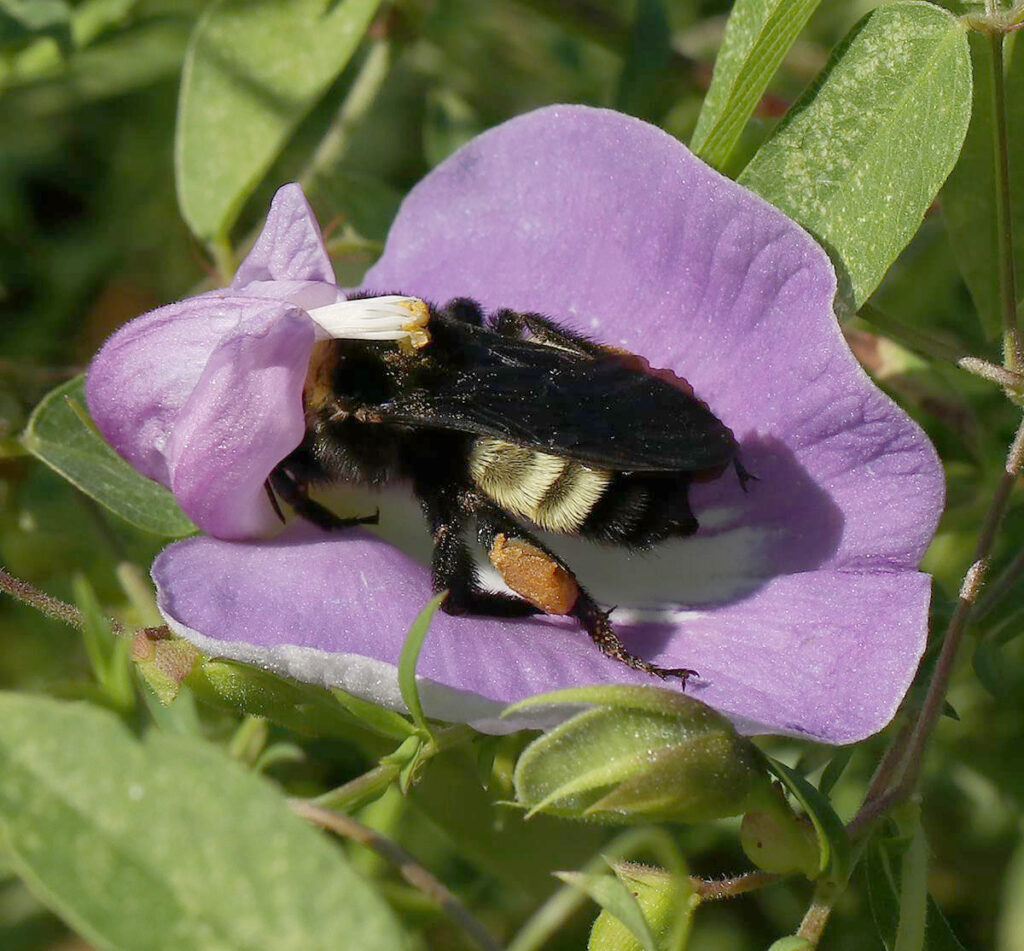Southeast Bumble Bee Atlas Training Webinar & Workshop
go.ncsu.edu/readext?929386
en Español / em Português
El inglés es el idioma de control de esta página. En la medida en que haya algún conflicto entre la traducción al inglés y la traducción, el inglés prevalece.
Al hacer clic en el enlace de traducción se activa un servicio de traducción gratuito para convertir la página al español. Al igual que con cualquier traducción por Internet, la conversión no es sensible al contexto y puede que no traduzca el texto en su significado original. NC State Extension no garantiza la exactitud del texto traducido. Por favor, tenga en cuenta que algunas aplicaciones y/o servicios pueden no funcionar como se espera cuando se traducen.
Português
Inglês é o idioma de controle desta página. Na medida que haja algum conflito entre o texto original em Inglês e a tradução, o Inglês prevalece.
Ao clicar no link de tradução, um serviço gratuito de tradução será ativado para converter a página para o Português. Como em qualquer tradução pela internet, a conversão não é sensivel ao contexto e pode não ocorrer a tradução para o significado orginal. O serviço de Extensão da Carolina do Norte (NC State Extension) não garante a exatidão do texto traduzido. Por favor, observe que algumas funções ou serviços podem não funcionar como esperado após a tradução.
English
English is the controlling language of this page. To the extent there is any conflict between the English text and the translation, English controls.
Clicking on the translation link activates a free translation service to convert the page to Spanish. As with any Internet translation, the conversion is not context-sensitive and may not translate the text to its original meaning. NC State Extension does not guarantee the accuracy of the translated text. Please note that some applications and/or services may not function as expected when translated.
Collapse ▲
American bumble bee on fall-blooming Appalachian blazing star. Photo by Debbie Roos.
Adapted from a press release from the Xerces Society:
Bumble bees are charismatic and easily recognizable pollinators thanks to their large size, loud buzz, and distinctive color patterns. They play an incredibly important role in sustaining the health of our environment by pollinating flowers in natural and urban areas, and by contributing to successful harvests on farms. The southeastern U.S. is home to about 20 different bumble bee species, at least 20% of which are undergoing population declines. Existing data suggests that many species of bumble bee face an uncertain future, but we often lack the data needed to implement effective conservation measures.
To tackle this gap in knowledge, several states have joined together to launch the Southeast Bumble Bee Atlas, a large-scale community science effort aimed at gathering the data needed to track and conserve southeastern bumble bees. Community scientists spread out across our project states to survey for bumble bees and report back with whatever they find! Surveys can be run on your own or with a group of people. Survey methods are also catch-and-release, so no bees are harmed. All you will need to participate in the surveys is an insect net, some vials or jars, a decent camera (including cell phone cameras), internet access for data submission, and a way to get to your survey sites.
With your help, we can quickly cover large regions of the country, collect scientific-quality data, and contribute to bumble bee conservation. The Southeast Bumble Bee Atlas project joins a growing nation-wide network of Bumble Bee Atlas projects managed by the Xerces Society for Invertebrate Conservation and partner organizations. I am excited to be a part of this project through the North Carolina Pollinator Conservation Alliance!
There will be two training opportunities for folks interested in helping with the Southeast Bumble Bee Atlas, a Zoom webinar training and an in-person workshop. Details are below.
Southeast Bumble Bee Atlas Training Webinar (Zoom)
Wednesday April 19, 2023
6:00-8:00 p.m. EST
Register for this Zoom Training Webinar
A recording of this webinar will be available for viewing for folks who cannot attend live.
Southeast Bumble Bee Atlas Training Workshop (In Person)
Saturday May 13, 2023
9:00 a.m. – 2 p.m. EST
The North Carolina Zoo
4401 Zoo Parkway
Asheboro, NC 27205
This workshop will cover everything you need to participate in the Southeast Bumble Bee Atlas: how to catch and photograph bumble bees, submit your data, and identify your local bumble bees. We will also cover bumble bee ecology and conservation. Anyone with an interest in bees and a desire to help them in a hands-on way is encouraged to attend – no prior experience needed!
Register for the Southeast Bumble Bee Atlas Training Workshop.
Agenda:
We will cover bumble bee biology and project how-tos in a series of modules and hands-on activities:
- Module 1: Bumble bee biology and project background (classroom)
- Module 2: How to participate in the Southeast Bumble Bee Atlas (classroom)
- Module 3: How to catch bumble bees (outdoors)
- Module 4: Bumble Bee ID, and the photos we need to see! (classroom)
INSTRUCTOR: Laurie Hamon, Endangered Species Conservation Biologist,
The Xerces Society
Laurie is a conservation biologist for the Xerces Society for Invertebrate Conservation and the lead project manager for the newly-launched Southeast Bumble Bee Atlas. She earned her PhD at North Carolina State University, where she conducted her thesis on the pollination ecology of Venus fly traps. She has conducted survey work for multiple rare insect species and investigated insect communities in urban pollinator gardens. Laurie was also co-coordinator on a community science project to monitor butterflies at a biological reserve in Chapel Hill, North Carolina.
PARTNERS
This workshop is supported by the US Fish & Wildlife Service, the Tennessee Wildlife Resources Agency, the North Carolina Wildlife Resources Commission, and the Georgia Department of Natural Resources.
Visit the Southeast Bumble Bee Atlas website for more information.

Bumble bee on spurred butterfly pea vine. Photo by Debbie Roos.


